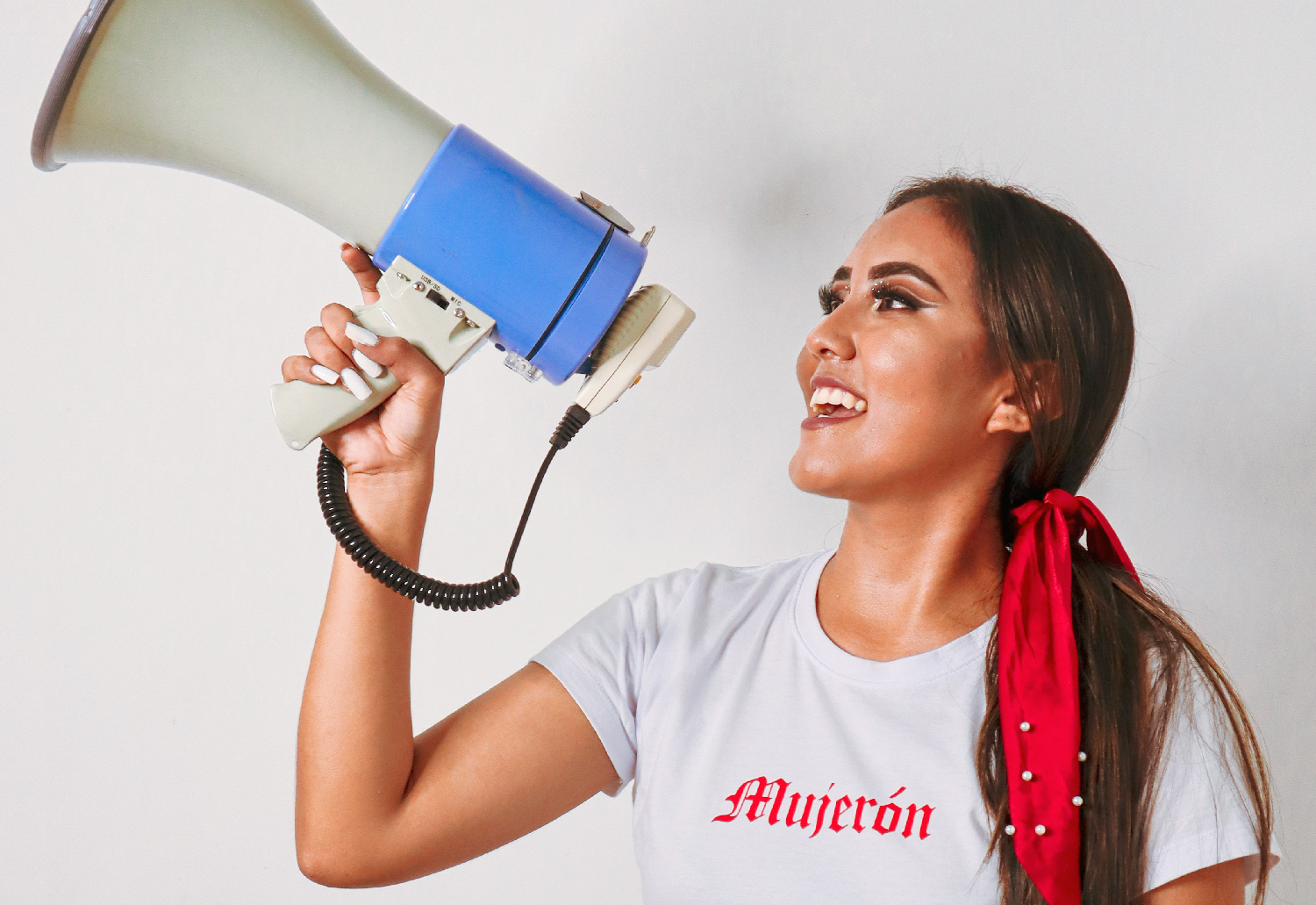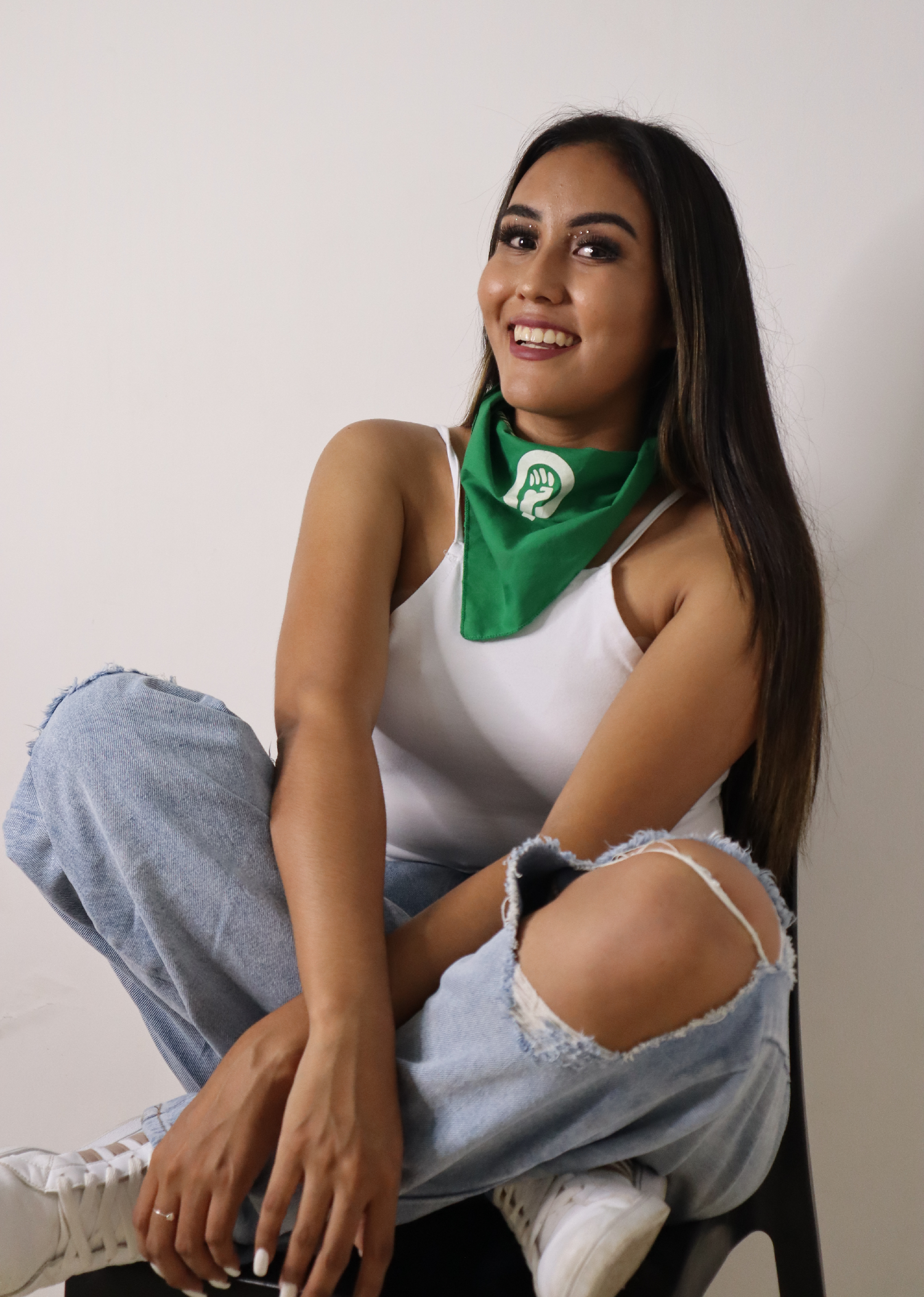Selina Raldes: "Young women have a leading role in constructing peaceful societies."
Selina Raldes Herrera is a young Bolivian feminist and sexual and reproductive rights activist. She is a medical student in her ninth semester of psychology. She is the national coordinator of the National Platform of Adolescents and Youth for Sexual and Reproductive Rights. This organization works in schools in six departments in 16 municipalities in rural Bolivia to empower girls, adolescents, and young women. She represented Bolivian youth at the Regional Youth Consultation in Santiago de Chile (2020) and the XIV Regional Women's Conference (2020). At the end of 2021, she won a scholarship from the U.S. Embassy's Winter Institute for Young Leaders program. Also, she participated in the Generation Change Program of the Peace Institute in Colombia.
Date:

What is the role, and why is youth participation important in peacebuilding and sustainable recovery from crises?
When young people take action against problems that affect us in our daily lives, we are told that we are building a better future; however, young people are the protagonists of building a present in a culture of peace, where our greatest challenge is to question, unlearn cruel practices that violate human rights, the cruelty that we have adopted and normalized through our cultural practices, especially against girls, adolescents, and young women.
We must find innovative solutions to deal with human rights violations. We are the generation that questions how the intersectionalities that intersect us converge in problems that have the same root and that, from our differences, could enrich us. We can seek solutions, taking advantage of digital tools to approach from different parts of the world, so that no one is left behind, nor that raising our voices and being taken into account is a privilege.
The key to achieving a sustainable recovery is to leave no one behind, especially the youth of populations that have historically been excluded, such as indigenous and rural communities, whom the climate crisis has stripped of fundamental human rights to a greater extent, and LGBTIQ+ populations, whose lives are at risk in specific areas of the region.
Although we are all affected by the same issues, we must understand that some will be affected to a greater extent. From our position, we must act to build a present with a culture of peace, where we embrace our differences and can question and deconstruct culturally learned patterns that keep us away from a just society that allows us to live with dignity.

How can we promote more significant youth participation in constructing more peaceful societies with gender equality, inclusion, and sustainability?
We promote meaningful participation when we activate spaces from youth for youth; when young people are invited to participate in decision-making spaces in the communities, and their demands and solutions are taken into account from their perspectives; when young people are recognized from our multiple diversities within the same context; when young men, women, and diversities are called upon to acknowledge their different intersections and work from our reality so that these do not remain as a limiting sentence that does not allow us to exercise our rights or develop.
As young women, we have a leading role in constructing peaceful societies. We cannot build a sustainable present and future if we do not open spaces of youth for youth where we work with equity, are inclusive, and are aware that our decisions for our environment are essential to living with dignity. Socially we have been excluded from the decisions that affect us to a greater extent, where social crises have caused our basic rights such as education, health, and bodily autonomy and decisions to be hindered.
It is time that the authorities listen to what affects us, include our solutions in national projects and programs. On the other hand, youth needs to take action stemming from our differences and similarities, building the present and future in equality. When we act together as a region we see impressive changes.
How can intergenerational solidarity be promoted for building a culture of peace and sustainable recovery for the achievement of the SDGs?
We have a precedent of battles that our predecessors carried out in the field of human rights. Many times we see adults as contrary to our ideas; however, from our differences and experiences, we can continue to build on the road we have traveled with new strategies that are sustainable and responsive to the needs of our changing realities.
From my experience, perhaps I would not have started my journey if an adult had not shared her story and, through that, inspired me to take action. For me, the recognition of intergenerational input from any side or perspective must exist.
We cannot move forward without the uncomfortable talks of questioning, learning (and unlearning) what already exists in human rights and what we can contribute from youth to progress on the SDGs.
Just as we were one day inspired by our grandmother, mother, sister, or another adult figure, we as young activists are also inspiring more girls, teens, and young women to join the fight and build a sustainable world.
We must question what is being done among all of us to engage in healthy dialogues and debates, from which effective solutions can emerge to address the changes that are emerging in the world.
| The opinions are the author's responsibility and do not reflect an official position of UN Women or any other agency of the United Nations System. |